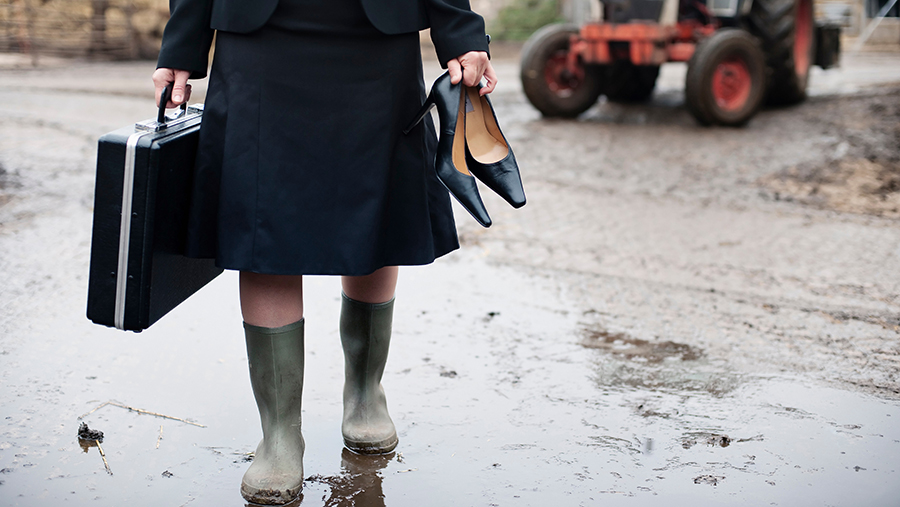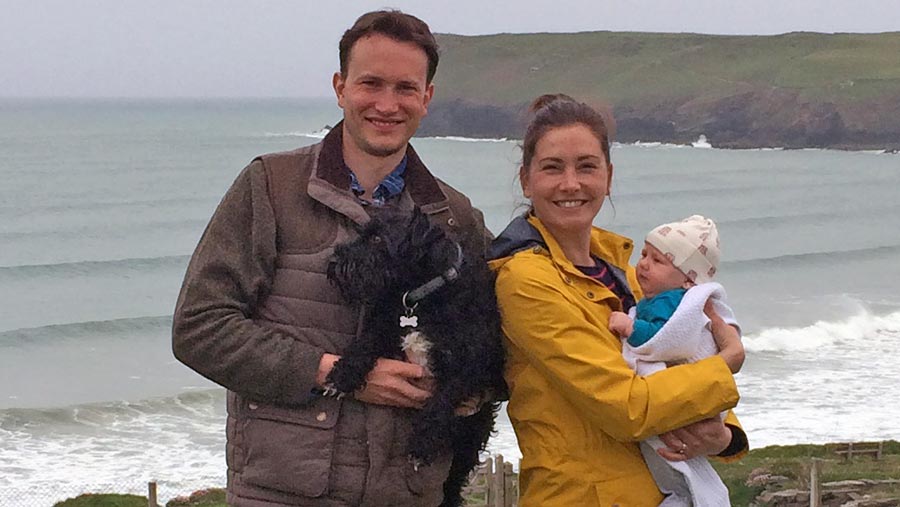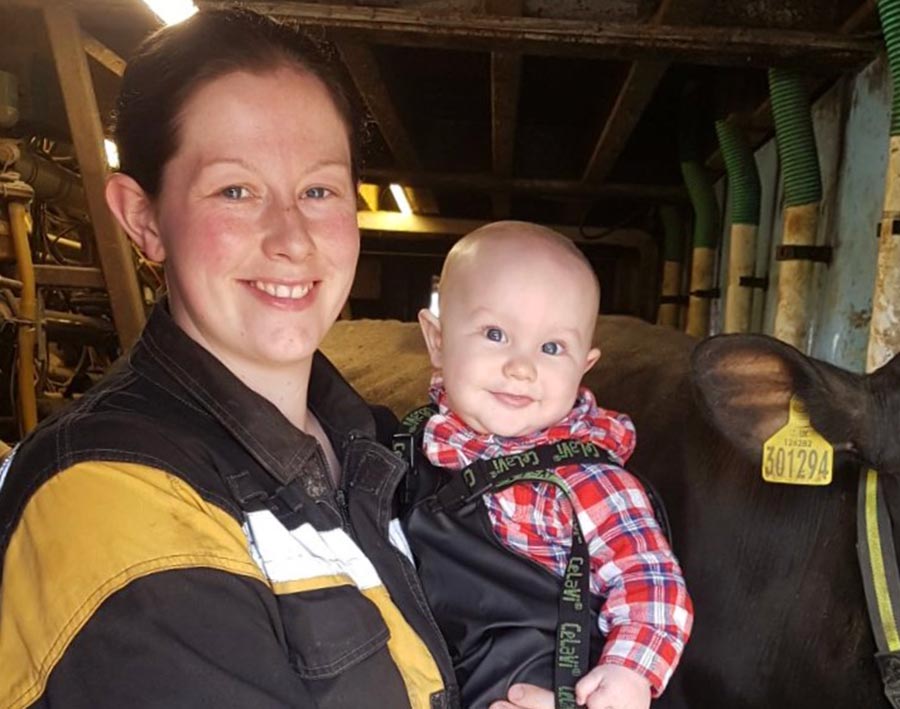Why more high-flyers are returning to the family farm
 © Cultura/REX/Shutterstock
© Cultura/REX/Shutterstock Record numbers of people are returning to family farms after high-flying careers in other industries.
Colleges are catering for the demand with courses specifically designed to appeal to farmers’ sons and daughters who are returning home to join the family business.
The reasons behind the trend appear to be twofold. As Brexit hoves into view, farms need new income-generating ideas to compensate for anticipated losses in future farm payments.
See also: What’s next? Options for farmers’ children after they leave school
Secondly, as former corporate lawyer George Peto explains, there is no longer such a thing as a career for life. “No profession is safe – people are hired and fired at the drop of a hat these days,” he says.
“Interestingly, at the same time as top careers have become more unstable, farming has turned full circle into a better bet than it used to be. Agriculture is full of opportunities at the moment.”

George Peto with his wife Frederieke and baby son Jacob
37-year-old George is coming to the end of the Royal Agricultural University’s graduate diploma in agriculture and plans to return to his family’s 280ha mixed farm in the Scottish borders.
The course is specifically designed for professionals “reorienting” their careers to the agricultural sector.
Together with his wife Frederieke, a large-animal vet originally from the Netherlands, he plans to launch a venison enterprise as well as offer treehouse accommodation for paying guests.
George’s father ran the farm full-time until 15 years ago, when he made a contract arrangement.
Homecoming
“It had always been in the back of my mind that I would return,” says George. “But I needed to come up with a plan, which is what the university course has helped me with.
“I needed to make sure what I was planning was viable. I like that the price of venison is very stable and there is lower input on vet meds and concentrates than with other livestock.
“Those coming back to farming after careers elsewhere are often used to taking risks and negotiating good deals, which is just what the industry needs at a time of change.”
George’s treehouse plan, inspired by his honeymoon in South Africa, is part of a wider move to improve access and public engagement on the farm.
He has studied full-time for one year, but it’s in part-time study that the RAU has seen the biggest increase.
Numbers taking the diploma part-time have grown from 23% in 2016 to 47% in 2017, reflecting those winding down existing careers or already back home on the farm with limited time to devote to studying.
“We have seen a move towards more part-time study because the flexibility helps support the transition between the careers,” explains Chris Brough, head of the RAU’s Centre for Agriculture.
New generation
Rhonda Thompson, business development manager at Bishop Burton and Riseholme Colleges, has recently opened applications for her two-week Farm Management Development Programme.
The course has been designed by farmers Andrew Ward MBE, Andrew Brown and Robert Borrill – all of whom have undertaken professional development themselves through the Worshipful Company of Farmers and the Institute of Agricultural Management.
The course is also accredited by the RAU and since it started in 2015 has received around £70,000 in funding support from the Prince’s Countryside Fund.
Food manufacturer Jordans Cereals is also on board, offering mentoring on subjects ranging from cash flow and budgeting to people management, best farm practice, setting business objectives and strategic planning.
Subjects covered include chairing meetings, accounts, marketing, land values and understanding assets. Guest industry speakers, field trips and case studies form the backbone of the course, explains Rhonda.
“This new generation aren’t satisfied with simply following the same path as dad and grandad. Skills learnt in careers outside farming can bring a much-needed business mindset back to family farms,” she says.
“There is definitely an upsurge in farmers’ sons and daughters returning to family farms. They want to return but they don’t want to return to the status quo – they want to make their own mark.”

© Caroline Rushton
Skills to bring back to the farm
Henry Hilsdon, 33, says the Bishop Burton course gave him the skills needed to follow his dream of offering weddings at his family’s Buckinghamshire farm, initially in a marquee and now in a converted stone farm building.
“It’s made the whole thing less daunting,” says Henry, who left his career as a project manager at Oxfordshire County Council to run Huntsmill Farm Weddings.
“It’s impossible to put a price on the support network Rhonda and her fantastic contacts offer. Family farms can be quite isolating places – to have somebody at the end of the phone who understands what you are trying to do is worth everything.”
The dynamics of his family farm changed when his brother emigrated to buy a farm in Australia, necessitating the farm’s total area having to be halved to 130ha.
“I would go into different departments of the council and manage projects, such as new IT systems,” says Henry. “It was quite a stressful job and when I got married I bought things – such as the marquee – thinking long-term of the business I would like to set up.”
It didn’t happen overnight either. He kept his job and worked on the weddings on evenings and weekends. His advice to others is to start the conversation with parents as soon as possible.
“It’s not easy because they will have their way of doing things and you will have your ideas. My career outside farming equipped me with plenty of skills to bring back to the farm, but two obvious advantages were being able to understand planning permissions and grant applications.
“Nothing done outside farming is a waste of time – it makes sense to get other life and work experience first.”
“But we’ve always done it like this”
After an interesting career which saw her working behind-the-scenes on the ITV soap opera Emmerdale as a background artist, Georgina Fort returned to work full-time on her family’s 120ha dairy and sheep farm in Silsden, West Yorkshire.

Georgina with her son Alexander
The 29-year-old got a degree in theatre and performance studies and, although she always intended to return home, she urges others to try their hand at something different to agriculture at the start of their working lives.
She works alongside her father, Edward, and sister Rebecca. We asked her a few quick-fire questions:
What was the hardest thing about returning home?
“Not having the freedom to go on holiday and working unsociable hours.”
What advice would you give to others thinking of doing the same?
“It’s hard work working with family at times, so you need to get used to the phrase ‘but we’ve always done it like this’.”
What’s the best thing about returning to the family farm?
“Being able to make a difference. Working away from the family farm has enabled me to return with a fresh pair of eyes; I encourage all young farmers to do the same.”

